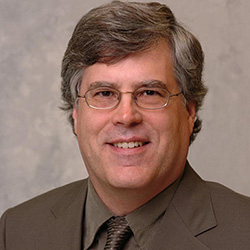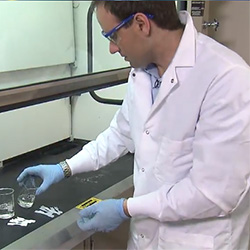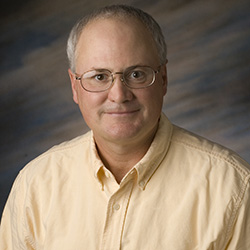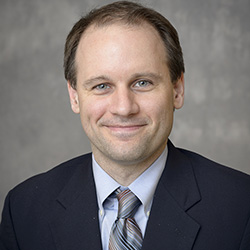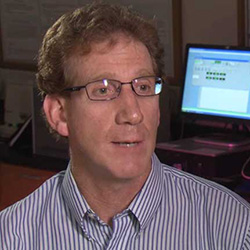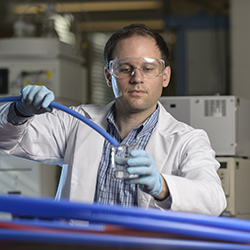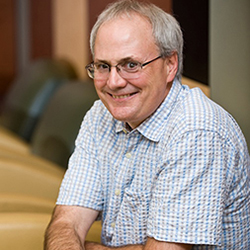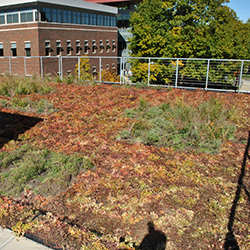Environmental Engineering
With only one world to live in, environmental engineers are helping make sure we handle it with care. The skills of environmental engineers are
becoming increasingly important as we attempt to protect the fragile resources of our planet. Students in Environmental Engineering will have the
opportunity to apply science and engineering principles to improve the environment, water, air and land.
In Civil Engineering you can prepare for a great future with an environmental engineering career that offers a remarkable opportunity to positively affect the quality of life in our communities, our country, and our planet. Check out the Environmental Engineering area and join in on the excitement! You will have opportunities for research and education in a wide range of issues, including remediation of contaminated soils and sediments, industrial and solid waste treatment, water and wastewater treatment, air pollution measurement and control, urban and agricultural air and water quality management, understanding the environmental fate of pollutants, and sustainable engineering. Other options are also available through the
Division of Environmental and Ecological Engineering.
Our Environmental Engineering faculty have leadership roles and participate in numerous national and campus centers and institutes. We offer flexible academic options and research opportunities in our top
environmental facilities for undergraduate students, as well as MS and PhD graduate degree programs. The Purdue Air & Waste Management Association also offers opportunities for student involvement in the advancement of environmental knowledge.
Spotlights
August 10, 2015
A new study provides guidance to health officials and drinking water providers on how to decontaminate plumbing systems.
May 12, 2015
Professor Chad Jafvert recently completed a $600,000 research project funded by the U.S. EPA on the environmental fate of carbon-based nanomaterials. This is one of the first studies to report on the environmental fate of this emerging nanomaterial.
April 28, 2015
More than 1 million storm-water culverts that drain U.S. roadways are in need of repair. State Departments of Transportation (DOTs) have turned to cured-in-place pipe, or CIPP, as a fast and low-cost way to rehabilitate the aging systems. Professor Andrew Whelton and his team were recruited to take a closer look at CIPP's environmental effects.
April 15, 2015
In January 2014, thousands of gallons of chemicals spilled into West Virginia's Elk River, near Charleston. With support from a National Science Foundation (NSF) rapid response research grant (RAPID), environmental engineer Andrew Whelton led a research team that went door-to-door taking water samples within days of the spill.
April 7, 2015
Prof. Larry Nies has been named the recipient of the 2015 Excellence in Environmental Engineering Education (E4) Award, given annually by the American Academy of Environmental Engineers and Scientists.
March 26, 2015
Inez Hua, Professor of Civil Engineering and Environmental and Ecological Engineering, was recently appointed as a member of the Safe and Sustainable Water Resources, a subcommittee of the U.S. EPA Board of Scientific Counselors (BOSC), for a three year term.
February 17, 2015
CE senior Mariah Schroeder aspires to tackle a problem she finds very prevalent: the waste water draining into the local Wabash River.
January 29, 2015
Purdue civil engineering and environmental and ecological engineering professor Chad Jafvert will explain how Purdue undergraduate students are working to alleviate water troubles in global developing areas by designing point-of-use drinking water treatment systems during the next Science on Tap.
January 15, 2015
West Virginians suffered adverse health effects inside their homes after following plumbing-system flushing directions in response to a chemical spill last January, and these recommendations failed to consider the dangers of chemical vapor exposure, according to a new study.
January 8, 2015
Prof. Chip Blatchley received $31,186 from the Trask Innovation Fund to support "Continuous-Flow Solar UV Disinfection System," an innovation that kills waterborne microorganisms and produces safer drinking water.
December 18, 2014
A new report recommends that states require standardized testing to safeguard against environmental contamination caused by a widely used method for rehabilitating aging drainage culverts. Culverts divert stormwater away from roadways and are frequently made of concrete or corrugated metal. These objects are generally out of sight, but across the United States culvert infrastructure is decaying, said Andrew Whelton, an assistant professor in Purdue's Division of Environmental and Ecological Engineering and Lyles School of Civil Engineering.
October 20, 2014
Andrew Whelton, an assistant professor of civil engineering in Purdue's Lyles School of Civil Engineering and Division of Environmental and Ecological Engineering, is leading research into the effects plastic pipes have on drinking water in eco-friendly green buildings in the United States.
July 31, 2014
A group of Purdue University students and faculty members have completed work on a system that makes safe drinking water available to a community in the Dominican Republic sickened by poor water.
February 12, 2014
Congratulations to Prof. Chip Blatchley on being elected a Fellow of the American Society of Civil Engineering.
October 24, 2013
Ernest "Chip" R. Blatchley III, professor of civil engineering and environmental and ecological engineering, and other researchers are working to provide safe water supplies for millions of people by using ultraviolet (UV) radiation from the sun to purify water.
April 25, 2013
Congratulations to Larry Nies on receiving the 2013 Dean Marion B. Scott Outstanding Professor Award, presented by the Purdue chapter of Tau Beta Pi.
March 18, 2013
Prof. Larry Nies has been teaching students about the importance of sustainability for more than a decade. Though the significance of enduring, productive systems is typically discussed in an engineering context in his classes, sustainability and productivity also characterize the instructional technology Nies has incorporated into coursework in recent semesters, notably his use of instructor- and student-produced online video.
March 8, 2013
Prof. Chip Blatchley is working with a team built across several of Purdue's disciplines to create lasting solutions for clean water in developing countries.
January 22, 2013
Prof. Chad Jafvert was awarded "Honorary Guest Professor" at Southeast University in Nanjing, China on January 9, 2013.
November 21, 2012
The School of Civil Engineering dedicated a new green roof laboratory on Oct. 12 as part of the University's Homecoming and the school's 125th anniversary celebration.

